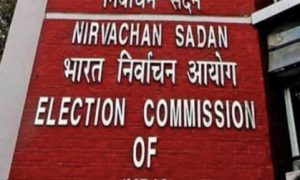Keeping large amount of cash at home is not only a security hazard, but the money locked in lockers also lose their purchasing power over time due to inflation. So, people keep their hard earned money in banks for protection against theft, burglary etc and also to earn some interest.
Apart from keeping money in savings bank accounts, large number of people also invest in fixed deposits (FDs) and/or recurring deposits (RDs) etc to get higher returns.
However, the latest crisis in Yes Bank has created a doubt on how safe it is to keep money in banks. Although the moratorium imposed on the private sector bank, restricting withdrawal limit of Rs 50,000 till April 3, set to end early, but the restrictions imposed by the Reserve Bank of India (RBI) has left the customers jolted.
The government has taken steps to ensure that the private lender doesn’t go bankrupt by asking other banks to invest in Yes Bank.
Despite the holistic effort to save Yes Bank, the matter of concern is that it’s not the first financial institution in recent past to face hardship. Starting from IL&FS, many non-banking financial institutions (NBFCs) and co-operative banks — including Punjab and Maharashtra Cooperative (PMC) Bank — have also faced serious trouble.
Moreover, if a bank fails, investors/depositors would get back the amount deposited, taking together balance in all the accounts and deposits, or Rs 1 lakh, whichever is lower, and that too if the financial institution has taken deposit insurance cover from Deposit Insurance and Credit Guarantee Corporation.
Although, the proposal is there to increase the deposit insurance cover limit from Rs 1 lakh to Rs 5 lakh, but merger of different public sector banks would result in consolidation of money deposited in separate banks into fewer banks, resulting in higher total deposits, which would make even the enhanced insurance cover to look small.
So, with all your money deposited in banks may not be safe, what should you do to protect your hard earned money?
Some of the options you may consider are
Check health of banks
Before you put your hard earned money in a bank, check its financial health first to ensure that it would not face trouble in the near future. Choose a financially healthy one over a nearby bank, even if it is some distance away and offers slightly lower interest on deposits.
As PSU banks are governed by RBI, they are presumed to be safer than their private sector counterparts. So, you should be extra careful while depositing money in a private sector bank.
Don’t put all your money in a single bank
As you would get only up to Rs 1 lakh currently if a bank fails, it’s better not to put all your money in a bank, but to spread it to some healthy banks. Take corrective action, if the money deposited in different banks gets concentrated in a single bank due to consolidation in the banking system.
Look beyond banks
As it is not guaranteed that you may get all your money deposited in a bank in case of its liquidation, you also need to try some better options, where your money will be safe. As Post Office deposits enjoy guarantee of Government of India, you may put some part of you money there. With Life Insurance Corporation (LIC) of India also enjoying sovereign guarantee, you may also try annuity schemes as an alternative of FDs.
Take some calculated risks
As the money put in banks are also not fully risk-free, there is no harm in taking some calculated risks by putting some money in debt mutual fund (MF) schemes to enjoy FD returns along with inflation and tax efficiency without compromising on liquidity.





































